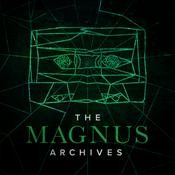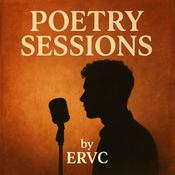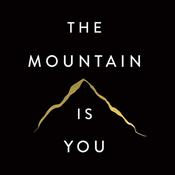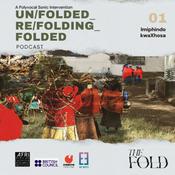41 episodes

04.10 "The Three Godfathers" (Kyne, 1913); 3 GODFATHERS (Ford, 1948), and TOKYO GODFATHERS (Kon, 2003)
2025/12/25 | 1h 48 mins.
It's a Christmas episode! Today we look at the short story "The Three Godfathers" and two adaptations--one very loose--of it: John Ford's 1948 3 Godfathers and Satoshi Kon's 2003 Tokyo Godfathers. Explore with us the mystery of grace and humanity in this desperate season of grace and humanity.Resource: Julia Serano

04.09 Hesse's SIDDHARTHA (1922) and Englund's ZACHARIAH (1971)
2025/12/07 | 2h 2 mins.
Some seek enlightenment in self-abasement; others, in surrender to the senses; still others, in a contemplation of time and eternity.The protagonist of Herman Hesse’s Siddhartha does all three. Today, on The Projectionist’s Lending Library, we examine Hesse’s 1922 novel, a kind of parallel life of the Buddha, and the 1971 electric Western Zachariah—perhaps the wildest adaptation we have looked at so far. So saddle up, adjust your gunbelt, and let’s ride into the wildest frontier of all—the human soul.Kaz Rowe: The Wild, Wild History of Gay Cowboy Movies

04.08 John Steakley, John Carpenter, and VAMPIRES
2025/10/31 | 2h 9 mins.
Beneath the surface of ordinary life is another world—the world of the vampire. While you go about your day—shopping, working—the vampire sleeps until the moment when, the sun fallen, he can emerge from his crypt and feast.Down these bloodsucking streets go men who are massive, giants with their own towering emotions. They live hard, drink hard, love hard, because they know that any night might be their last. Such is the price of being a vampire hunter.Tonight, on the Projectionist’s Lending Library, we enter the world of the vampire and the vampire hunter in John Steakley’s VAMPIRE$ and the John Carpenter movie based on it. So lock your doors, hold your loved ones close, and if you hear a noise outside, don’t be afraid. It’s only the children of the night….Chuck Berry song "Everyday We Rock & Roll" used under a Creative Commons license.

04.07 The Assassination of Jesse James by the Coward Robert Ford
2025/10/12 | 1h 41 mins.
The stars of the West are all larger than life: Wyatt Earp, Wild BillHickock, Billy the Kid. Among the brightest of these stars is Jesse James, an outlaw who became a legend in his own lifetime—and, through his death, ascended into the pantheon. But, of course, Jesse James was a man, and not a particularly good one; and his murderer, Robert Ford, was also a man. Their story is much less one of clashing titans and more one of petty squabbles, ambition, and greed. Today, on The Projectionist’s Lending Library, we look into Ron Hansen’s The Assassination of Jesse James by the Coward Robert Ford. This novel blends history and fiction to reach something like what that epic—that all-too-human—confrontation must have been like. It’s the story of the American West, the story of the American people—butultimately it’s the story of two men and their tragic confrontation. Jesse James was a legend, of course—but he was a man. And so was his assassin.

04.06 Ruthanne Lum McCunn and THOUSAND PIECES OF GOLD (1981/1991)
2025/9/14 | 2h 3 mins.
In 1872, Polly Bemis came to America. She did not come, as so many have, out of hope of beginning a new life; she was forced here, sold into slavery (as the story goes) to a man named Hong King. One she arrived, however, she set about building a life for herself almost in spite of the men around her: she gained her freedom, she married Charlie Bemis, she settled down. These are details in the life of a single woman who has become famous in her adopted home-state of Idaho. Polly’s life was unique, and yet in some ways it reflected the lives of many other women who made the same journey. Today, on the Projectionist’s Lending Library, we read Thousand Pieces of Gold by Ruthanne Lum McCunn and we learn about this extraordinary woman who became a legend.Ruthanne Lum McCunn's Website
More Arts podcasts
Trending Arts podcasts
About The Projectionist's Lending Library
Listen to The Projectionist's Lending Library, Artwork Sounds and many other podcasts from around the world with the radio.net app
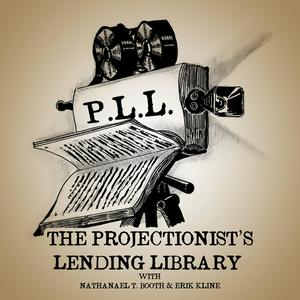
Get the free radio.net app
- Stations and podcasts to bookmark
- Stream via Wi-Fi or Bluetooth
- Supports Carplay & Android Auto
- Many other app features
Get the free radio.net app
- Stations and podcasts to bookmark
- Stream via Wi-Fi or Bluetooth
- Supports Carplay & Android Auto
- Many other app features


The Projectionist's Lending Library
download the app,
start listening.


